
Artificial intelligence (AI) and socioeconomic factors enhance risk stratification for patients with acute myeloid leukemia (AML) post transplant, aiming to reduce hospital readmissions and disease progression.

Artificial intelligence (AI) and socioeconomic factors enhance risk stratification for patients with acute myeloid leukemia (AML) post transplant, aiming to reduce hospital readmissions and disease progression.

Continuing his interview about these results, CEPHEUS lead investigator Saad Z. Usmani, MD, MBA, FACP, FASCO, highlights the minimal residual disease negativity findings.

Noting the profound impact of living with a chronic condition that constantly reminds patients of their "patient" status, Andrew Kuykendall, MD, Moffitt Cancer Center, emphasizes the importance of therapies that can offer a sense of normalcy.

The COCOON trial reveals that prophylactic treatment reduces dermatological adverse events in NSCLC patients, enhancing their quality of life during amivantamab therapy.

Zongertinib shows promising results in HER2-mutant NSCLC, offering high response rates and improved quality of life with minimal toxicity.

Surbhi Sidana, MD, MBBS, director of the Myeloma Disease Focused Group at Stanford University, provides a reintroduction to CARTITUDE-4 and insight on how this phase 3 investigation builds on previous findings of CAR T vs standard-of-care findings in relapsed/refractory multiple myeloma (RRMM)

A teledermatology program in Georgia helped identify patients with skin lesions that warranted in-person follow-up with a physician.

Shorter venetoclax durations in patients with acute myeloid leukemia (AML) and myelodysplastic syndromes (MDS) yielded comparable survival outcomes in a new study, challenging treatment norms.

CEPHEUS trial lead investigator Saad Z. Usmani, MD, MBA, FACP, FASCO, explains how the trial both builds on current knowledge of newly diagnosed multiple myeloma and how transplant-ineligible status may affect therapeutic decision-making.

The timing of immunotherapy initiation is not a significant factor in the outcomes of patients with extensive-stage small cell lung cancer (ES-SCLC), a study found.

Andrew Kuykendall, MD, Moffitt Cancer Center, explains the goals of the VERIFY trial and why its data on rusfertide could have paradigm-changing implications for patients with polycythemia vera (PV) who currently rely on frequent phlebotomies for relief.
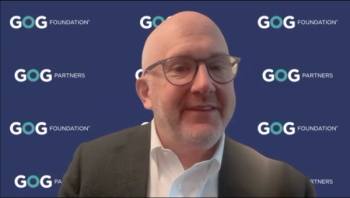
In the final part of an interview with Brian Slomovitz, MD, he highlights that the phase 3 ROSELLA trial demonstrates a safe, effective treatment for platinum-resistant ovarian cancer that does not require biomarker testing.

Results for IRAKLIA show noninferiority for Sanofi's on-body delivery system for isatuximab, compared with IV administration. Patients overwhelmingly preferred the hands-free delivery option.

Structured exercise programs should be a part of the standard of care for colon cancer following adjuvant chemotherapy, authors of the CHALLENGE study recommended.
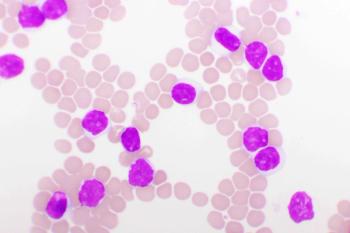
Zanubrutinib showed long-term efficacy in patients with chronic lymphocytic leukemia (CLL) or small lymphocytic lymphoma (SLL) and deletion of the 17p chromosome, with progression-free survival similar to patients without high-risk disease characteristics.

Rising early-onset colorectal cancer rates among young adults highlight the urgent need to explore lifestyle, genetics, and environmental factors driving this trend.

Patients with myelodysplastic syndrome (MDS) who received luspatercept showed greater hemoglobin gains and transfusion independence compared with erythropoiesis-stimulating agents (ESAs) in a real-world analysis.

Brian Slomovitz, MD, of Mount Sinai Medical Center, compares relacorilant plus nab-paclitaxel with existing treatments for platinum-resistant ovarian cancer and highlights the ROSELLA trial’s global scope.

Leaders in oncology share why the American Society of Clinical Oncology (ASCO) meeting remains a top global gathering for breakthroughs, networking, and lifelong learning.

Adolescent and young adult (AYA) patients with acute lymphoblastic leukemia (ALL) face significant survival disparities and unmet needs for effective third-line treatments, highlighting urgent care gaps.

Relacorilant combined with nab-paclitaxel (Abraxane) significantly improved progression-free and overall survival in patients with platinum-resistant ovarian cancer in the phase 3 ROSELLA trial, according to Brian Slomovitz, MD, one of the investigators.
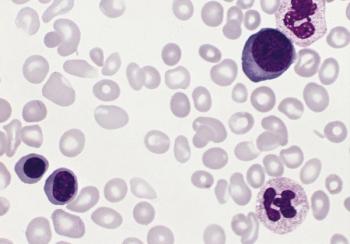
Adding rusfertide to standard of care more than doubled the share of patients with polycythemia vera (PV) who did not meet criteria for a phlebotomy, according to data from the VERIFY trial.

Dirk Arnold, MD, PhD, medical director, Asklepios Tumour Biology Centre, discusses a phase 3 clinical trial investigating amivantamab in metastatic colorectal cancer.

Jill Feldman, cofounder and president, EGFR Resisters, shares the importance of being proactive in managing dermatologic toxicities in epidermal growth factor receptor (EGFR)–positive lung cancer.

Oncology biosimilars significantly reduce financial toxicity in cancer care, as highlighted in 2 abstracts presented at the 2025 American Society of Clinical Oncology Annual Meeting.
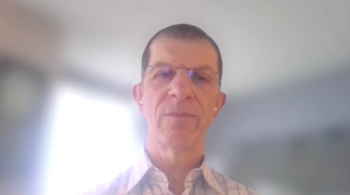
Danny Rischin, MD, medical oncologist, clinician researcher, Peter McCallum Cancer Centre, discusses a novel adjuvant treatment approach for patients with locally advanced cutaneous squamous cell carcinoma (CSCC).

Quadruplet therapy is now the accepted standard for patients newly diagnosed with myeloma who are ineligible for transplant; there is debate whether all newly diagnosed patients should have this regimen.

Trastuzumab deruxtecan plus pertuzumab shows promising results as a potential new first-line treatment for HER2-positive breast cancer at ASCO 2025.
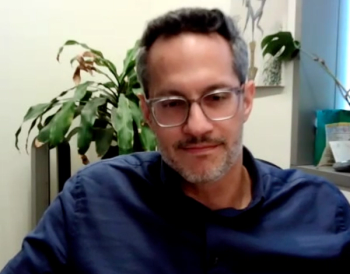
Ibrahim Aldoss, MD, associate professor, City of Hope, explores recent findings on ponatinib as a first-line treatment for Philadelphia chromosome–positive acute lymphoblastic leukemia (Ph+ ALL).

Multicancer early detection tests are revolutionizing cancer screening by using liquid biopsies to screen for multiple cancers from a single blood sample, enhancing patient outcomes by identifying cancers earlier.

259 Prospect Plains Rd, Bldg H
Cranbury, NJ 08512
© 2025 MJH Life Sciences®
All rights reserved.
